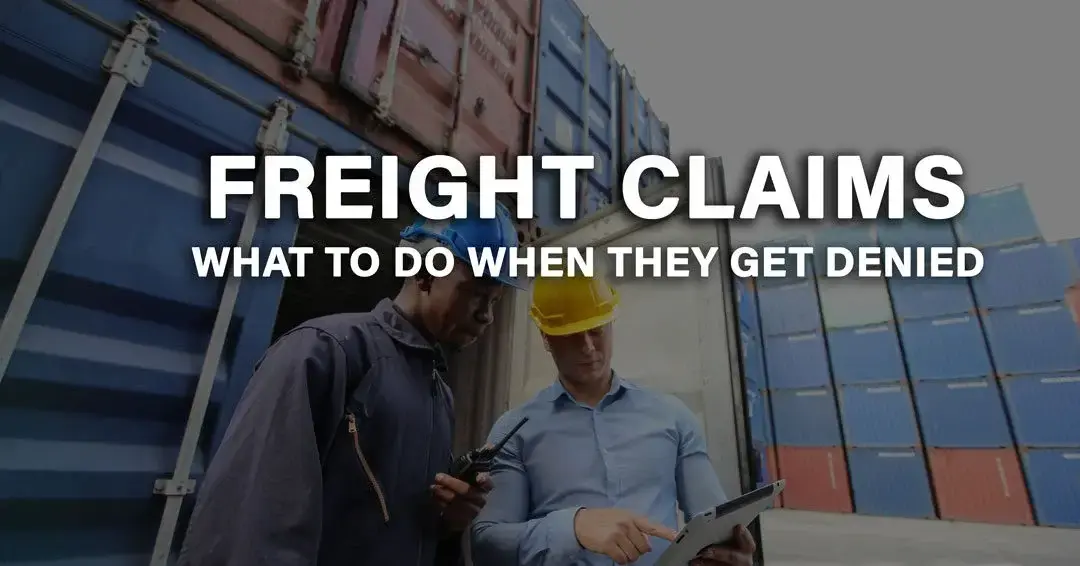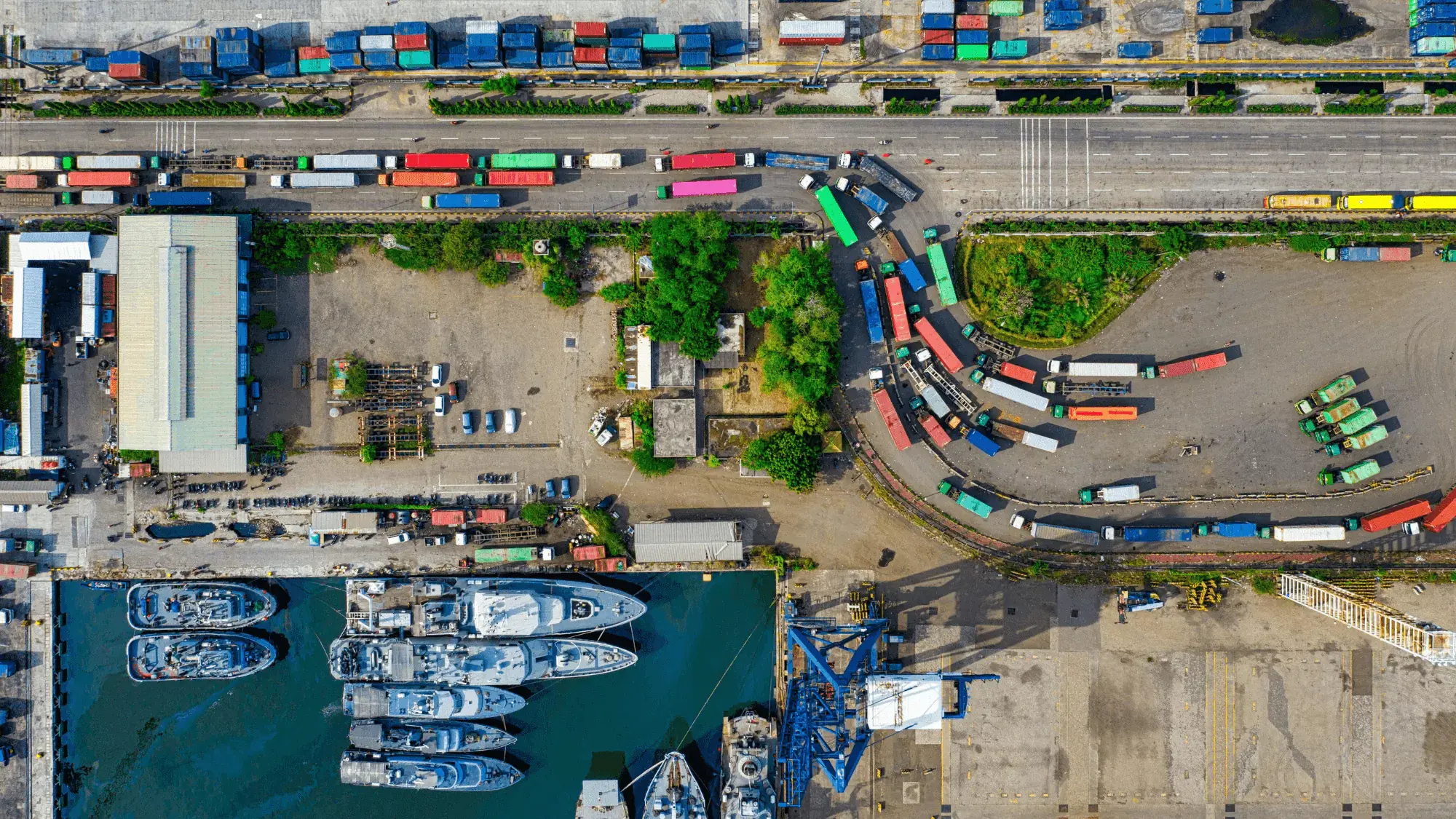
Have you ever felt like you're trying to navigate a confusing, complex maze just to get your products from point A to point B? From securing a carrier and tracking a shipment to filling out customs forms and dealing with unexpected delays, the modern supply chain can be tough for any business owner. You're not alone.
For many companies, the first thought about shipping goods is simple: find a truck, book a rate, and hope for the best. This often leads them directly to a carrier or, more commonly, a freight broker. While these are essential players in logistics, relying only on them can be like trying to build a house with only a hammer. It's a limited view, especially when your shipments are complex, international, or part of a larger, evolving supply chain.
What you're looking for is simple: a logistics partner who could secure the ride and orchestrate the entire journey from start to finish. This is the role of freight forwarding services. This post will demystify what freight forwarders do, distinguish them from other players like freight brokers, and highlight how they provide a comprehensive, end-to-end solution that can transform your operations.
What Exactly is Freight Forwarding?
At its core, freight forwarding is when
A company arranges the transportation of goods on behalf of a shipper.
It's a simple definition for a complex role. They are not a transportation provider in the traditional sense; they don't own the ships, planes, trains, or trucks that carry the cargo. Instead, they act as an intermediary, using their expertise and network to book space and manage logistics. Think of them as a "travel agent for your cargo." They handle all the bookings, scheduling, and paperwork, while the carriers provide transportation.
The actual value of a freight forwarder lies in this concept of being a full-service partner. By outsourcing logistics details to an expert, businesses can focus on what they're great at—developing products, marketing, and sales. It's a strategic partnership that ensures your goods move efficiently and reliably, no matter how complex the route.
Freight Forwarding vs. Freight Brokering: The Crucial Differences
The distinction between a freight forwarder and a freight broker is often confused. While both act as middlemen, their roles and the scope of their services are fundamentally different.
Freight Broker: The Matchmaker
A freight broker's primary role is that of a matchmaker. They connect a shipper who needs to move a shipment with a carrier who can do so. They focus on finding the best possible rate for a specific shipment on a specific lane. A freight broker can be an excellent resource if you have a straightforward, domestic shipment that needs to get from Point A to Point B. They often have vast networks of carriers and can quickly source competitive pricing. To learn more about this role, you can explore guides on finding the right partner, such as this one on finding the best freight broker for your needs.
The analogy here is simple: a freight broker is like a real estate agent who finds you a house. Their job is done once the connection is made. They don't handle the mortgage, the legal work, the inspection, or the moving process—all the other moving parts that make the transaction complete.
Freight Forwarder: The Master Orchestrator
In contrast, a freight forwarder is a comprehensive, end-to-end logistics solution provider. Their role begins when a shipment is ready and doesn't end until it's safely delivered to its final destination. They don't just find a carrier; they plan and manage the journey. This includes a wide range of services that are crucial for international and complex domestic shipping, such as:
-
Carrier & Route Negotiation: They leverage their industry relationships and volume to secure the best routes and rates across various carriers and modes of transport.
-
Shipment Consolidation: They can combine smaller shipments from multiple clients into a single, larger load (Less-than-Container Load or LCL), significantly reducing costs for each shipper.
-
Documentation Management: This is a significant pain point that they solve. Forwarders prepare and manage all necessary paperwork, including the Bill of Lading, export declarations, commercial invoices, and packing lists.
-
Customs Clearance: They navigate the intricate and often-changing world of customs regulations, handling duties, taxes, and inspections to ensure your shipment isn't delayed or seized at the border.
-
Warehousing & Distribution: Many forwarders offer warehousing services, allowing you to store goods at strategic locations and manage distribution to your final customers.
-
Cargo Insurance: They can offer tailored insurance plans to protect your goods against damage or loss during transit.
In short, a freight broker finds you a ride. A freight forwarder plans the entire journey, ensures your supply chain is resilient, manages the paperwork, navigates the complexities, and ensures you arrive safely and on time.
The Advantages of Using a Freight Forwarder
Beyond the core differences, partnering with a freight forwarder offers significant, tangible benefits for your business:
-
Cost Savings: While you might initially pay a service fee, a freight forwarder's ability to consolidate shipments and leverage volume discounts often leads to lower overall transportation costs.
Industry insights show that businesses save an average of 15-20% in shipping costs by consolidating shipments with a freight forwarder.
-
Time Savings: Imagine the hours spent coordinating with multiple carriers, chasing paperwork, and tracking shipments. By handling all this, a forwarder frees up your team to focus on revenue-generating activities.
-
Expertise and Risk Mitigation: The world of international trade is a regulatory minefield. One small error on a customs form can lead to costly delays and fines. Forwarders are experts in this domain, mitigating the risk of costly mistakes and ensuring compliance.
-
Global Network: A forwarder's network is invaluable if your business has global aspirations. They have established relationships with carriers and local agents worldwide, providing you with seamless access to new markets and destinations.
- Single Point of Contact: Instead of managing multiple relationships with various carriers and customs agents, you have a single point of contact for the entire process, streamlining communication and accountability.
The Role of Digital Freight Management
The freight forwarding industry was historically highly manual and paper-based. Modern freight forwarders are revolutionizing their services by integrating cutting-edge technology, particularly Digital Freight Management (DFM).
What is DFM? It's a technology platform that streamlines and digitizes the entire shipping process, from quoting and booking to tracking and reporting. It takes a freight forwarder's traditional expertise and supercharges it with efficiency, transparency, and data. Our Ultimate Guide to Digital Freight Management has a comprehensive breakdown.
Forwarders use these DFM systems to provide a superior customer experience. This can include:
-
Real-time Visibility: Instead of calling for updates, you can log into a portal and see exactly where your shipment is at any given time.
-
Automated Documentation: The DFM system can automate the creation and submission of all required paperwork, reducing the risk of human error and speeding up the process.
-
Enhanced Communication: A centralized platform allows seamless communication between the shipper, forwarder, and carrier, ensuring everyone is on the same page.
While a freight broker's tools are often focused on rate shopping and load boards, a forwarder's DFM platform is about managing the entire journey. This distinction is crucial. Integrating technology ensures that the forwarder is not just a facilitator but a truly proactive partner in your supply chain.
Partnering for a Smarter Supply Chain
Ultimately, the choice between a freight broker and a freight forwarder boils down to one question: Are you simply looking for a ride for your goods, or are you looking for a strategic partner to manage the entire process, ensuring supply chain visibility?
While a freight broker is excellent for straightforward, transactional needs, a freight forwarder offers a comprehensive, end-to-end solution that provides transportation, expertise, risk mitigation, and a single point of contact for all your logistics needs. They are essential for any business engaged in international trade or those seeking to streamline and optimize their supply chain for long-term growth.
If your needs are more complex than booking a shipment or starting to build a smarter, more efficient supply chain, a partner like Customodal can help. Our team of logistics experts uses our extensive network and digital tools to demystify complex shipping and act as the strategic partner you need to navigate the global market with confidence.





